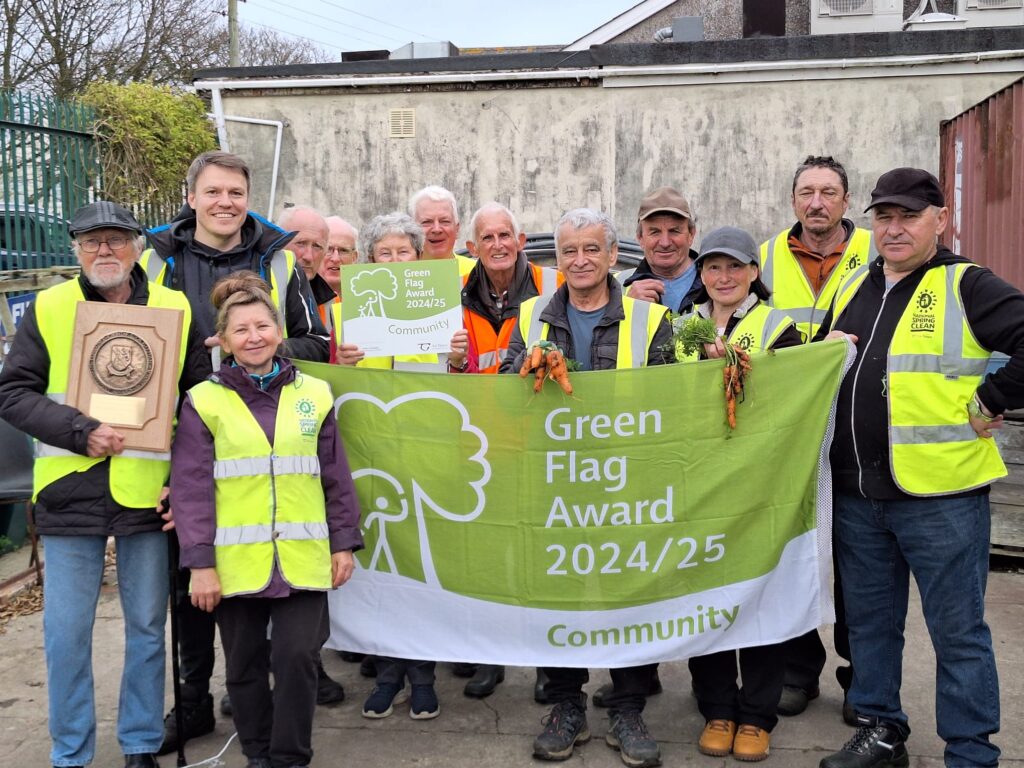Betty Kehoe, the biodiversity officer for the Rosslare Harbour-Kilrane Environmental Group, shared how her campaign to reduce political posters in her community came about and gained attention. She explained, “I was invited to join the group this year to help implement our five-year biodiversity plan for the area. My role was primarily to assist in managing our green spaces and community garden in a more sustainable way. But as I got involved, I started thinking outside the box and looking at how we could make a bigger environmental impact.”
Inspired by other communities, such as those in Ferns, which had successfully implemented a poster-free village policy, Betty decided to take action. “I thought it was a great idea, so we decided to go for it. It was a bit late because the election was called suddenly, and before we knew it, posters started going up. But we were determined to move forward with the campaign. On Saturday morning, we got all the letters out to the candidates, and to our relief, all the local candidates respected us and removed their posters.”
While most of the posters were taken down quickly, Betty noted that a few remained under roundabouts. “We’re still working on getting the last few down, but the response from the local candidates has been amazing. They’ve been respectful of our wishes, and we’ve done the same for them,” she said. Betty believes the issue of election posters goes beyond local concerns and needs to be addressed on a national level. “It’s well documented how detrimental single-use plastics are to the environment, and it’s shocking to think that plastic can take over 400 years to break down in a landfill. This is something that should be tackled from the top down, not just from the bottom up.”
Betty is calling for a national ban on unnecessary political posters. “There’s enough media for politicians to get their message across—TV, radio, social media, and printed media. There’s no need for the wasteful use of plastic banners, especially in such quantities. If there was just one poster in the village, it might be okay, but when there are nine or ten from each candidate, it becomes ridiculous. It’s like a circus, and it’s a waste of resources.”
She also pointed out the safety risks associated with excessive posters, particularly in high-traffic areas. “In Kilrane, during the local elections, there were 45 posters around the roundabout. That’s absolutely ridiculous, especially on the main road coming into Ireland. This is what visitors and people driving into our village see as they enter the country. It’s not just an environmental issue—it’s a road safety issue too.”
Betty’s ultimate goal is to bring more attention to the environmental impact of these posters and push for change. “If politicians are truly engaging with their communities, there are so many ways for them to connect with voters without contributing to plastic waste. We need to rethink how we do elections and ensure that our actions reflect our environmental responsibilities.” She concluded, “I believe that if we make these changes at a national level, it would set a strong example for the future and show that we are serious about tackling climate change.”

